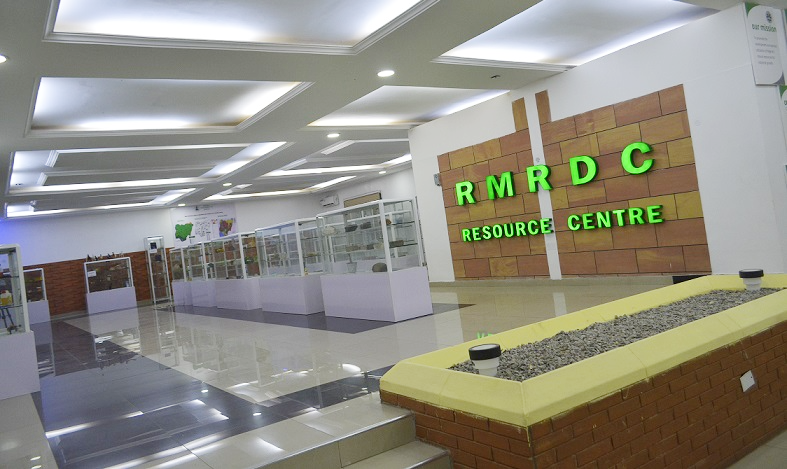The Raw Materials Research and Development Council (RMRDC) has boosted Nigeria’s drive to industrialisation especially in the capacity to utilise the abundant raw materials available in different sectors of Nigeria to produce quality goods in order to reduce over dependence on imported materials and products.
These efforts became imperative as part of the growing initiative of the federal government to enhance the use of Nigerian raw materials through research and development for industrial productions as well as export with value added.
The Council, which took a team of journalists to a tour of its plants, Laboratory, RMRDC Resource and Information Centre and several pilot plants of the council in Abuja recently, showcased a variety of products that were derived mainly from Nigerian raw materials. It said massive achievements have already been recorded in a bid to build Nigeria’s industrial base with its indigenous raw materials to export and generate foreign exchange.
Speaking to the journalists during the tour, a director and head of corporate communications in the Council, Chikwudi Ngaha, said the efforts to harness the resources of the nation have been intensified under the director- general Prof. Hussaini Doko Ibrahim.
He said, “We are looking inwards and raw material will increase our capacity to generate revenue. Our foreign exchange earnings will increase. So, we are propagating looking inwards. When Prof Hussaini Doko Ibrahim came on board his major task was how to reduce importation and he has achieved that and from the products that are available you can see that.
“This tour is to tell the world that RMRDC is still fulfilling its mandate in raw material sourcing and development,” he said.
Also speaking, deputy director, Engineering, Design and Development Division and technical assistant in the director-general’s office, Etuosochukwu Obassi, noted that the quality of products depends on the quality of raw materials. According to him, Nigeria can generate more revenue by adding more value to its exports.
“You can short-change yourself by exporting your materials raw. What you need is value addition that means you must know what is inside your raw material,” he said.
He said the Council is boosting the capacity of industrial agro raw materials by developing improved and disease-resistant varieties as well as the domestication of a variety of industrial raw materials. He added that the Council has achieved some success in development of phytomedicine .
Some other achievements he noted include the development, domestication and release of a variety of raw materials such as over five varieties of sweet sorghum, improved varieties of sesame, three varieties of castor, sugar beet, among others.
Obassi disclosed that the Council has done research on how to process and add value to some materials.
“We are using a kennel shell to develop brake pads. These brake pads have even been tested in the United States of America and they are better than the carcinogenic asbestos for break, when this one wears away, it doesn’t bring a carcinogenic effect in the atmosphere, and that’s why we went for this.
“We are working with other companies to get into commercialisation of this. The council has developed about 150 copies that went into local vehicles, which we are still monitoring and found out that it takes longer for these things to wear,”he said.
Also speaking during the tour of the Raw Materials Testing and Certification Laboratory, assistant director and head of the pharmaceutical division, RMRDC, Fortune Alabi, said the lab is certified by the International Organization for Standardization.
She said the laboratory was established as part of the new, additional mandate of the Council, adding that the mandate includes the establishment of laboratories in line with its New Act 28 of 2022, to test locally sourced materials in the country.
She said, “So, we carry out research on the raw materials that we get from the mineral resources and from the agro resources because it serves as input to the industries that we have. We also know that recently some of our raw materials were rejected because of the issue of standard. So, if you bring your raw materials here we test them and if they are of standard we give specifications because this lab has the mandate to do so.
“We are trying to build up raw materials that can compete both locally and internationally so that when we process raw materials here after the industries have used them they can also export them because they will need to meet the standard of the global market.”
The ACT 2022 is to fulfil the objective of the national strategy for competitiveness of raw materials and products.
An assistant director in charge of some plants, Sirajo Musa, said Nigeria can transform its economy through raw materials as a lot of research has been carried out and the development of products have been made and awaiting commercialisation by investors and promoters.





